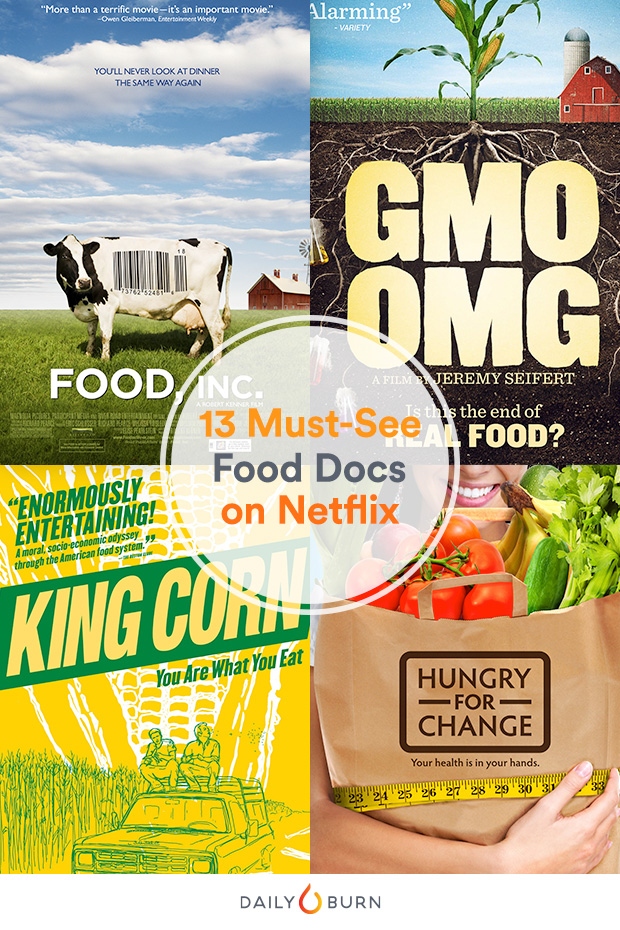
Netflix and chill is so 2015. Today, it’s all about Netflix and learn. Sure, we can marathon watch Stranger Things and House of Cards all day. But food industry-related documentaries are dominating discussions everywhere from the news to your post-workout brunch table — and that’s because there’s some seriously interesting things going on out there. From the world’s insatiable demand for meat to the sugar hiding in our foods to Monsanto’s controversial practices, get ready to get your seemingly healthy views rocked. If you don’t want to be left out of the post-run club conversation, check out these 13 classic, controversial and eye-opening documentaries that’ll change the way you view your food.
13 Food Documentaries That Will Change the Way You Eat
1. Forks Over Knives (2011)
Why you should watch it: This is the insta-classic documentary your BFF watched before she decided to go vegetarian. But it’s not just a preachy “don’t eat meat” fest. Instead, Forks Over Knives advocates a whole foods, plant-based diet that’s devoid of processed foods and oils. (Check out our complete rundown of the diet here.) And while that may seem like a no-brainer idea today — or at least one that might make you consider Meatless Mondays — it was slightly more shocking when it debuted in 2011. That could be in part because it doesn’t hold back. The film takes an aggressive — and at times graphic — stance on the meat and dairy industries. It asserts that most degenerative diseases can be controlled or reversed by ditching animal-based and processed foods.
2. Sugar Coated (2015)
Why you should watch it: Got a sweet tooth or two? This “I Quit Sugar” documentary wants to forcefully remove it. Like its friends Fed Up and That Sugar Film, this doc addresses the politics surrounding the sugar industry and its claims that the white stuff isn’t toxic. Sugar Coated wants the industry to take responsibility for America’s growing health issues, and compares the sugar industry’s tactics to Big Tobacco’s. There’s no denying it now — a recent New York Times piece reported on how the sugary industry paid scientists in the 1960s to play down the link between sugar and heart disease and to shift the blame on saturated fat.
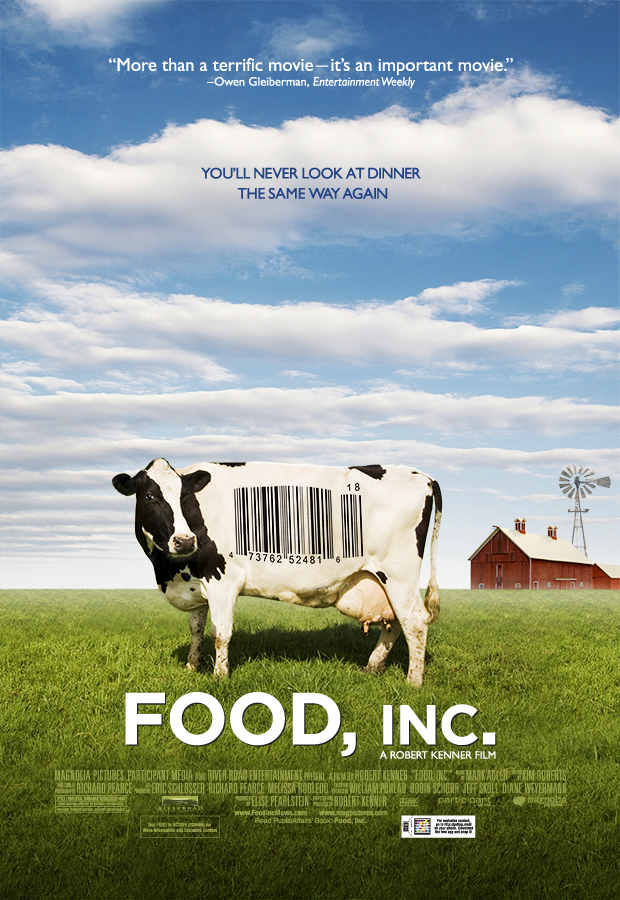
3. Food, Inc. (2008)
Why you should watch it: The food we eat today is drastically different than the food people consumed 50 years ago. And Food, Inc. says that has less to do with human behavioral habits and everything to do with the food and agricultural industries. The no-holds-barred doc exposes the way many common foods are produced, and reveals the laws that are in place to protect the food industry.
4. Cooked (2016)
Why you should watch it: Acclaimed food writer Michael Pollan takes a compelling look at the four natural elements — fire, water, air and earth — and how they are all represented in the history of the way we make and enjoy food. Throughout the four-part docuseries, Pollan draws a connection between various cultures and how each element is celebrated in their cooking techniques. And unlike other food documentaries that make meat — and gluten — the villain, Cooked strives to show balance in a diet. For example, the episode “Air” shows just how much the bread making process has changed over the decades, and why more people are becoming more sensitive to gluten.
5. Fed Up (2014)
Why you should watch it: The film’s tagline alone packs a punch: “Congress says pizza is a vegetable.” (And that’s true: In 2011, Congress passed a bill that said two tablespoons of tomato paste was a vegetable, thereby qualifying pizza as a school-lunch-approved meal. Yikes.) The Katie Couric-backed documentary specifically hones in on staggering rates of obesity in the United States and puts much of the science-backed blame on the sugar industry. Remember when fat-free products were taking over grocery shelves in the 90s? As weight loss diets pointed the finger at fat, the food industry removed fat from their products and actually replaced it with sugar.
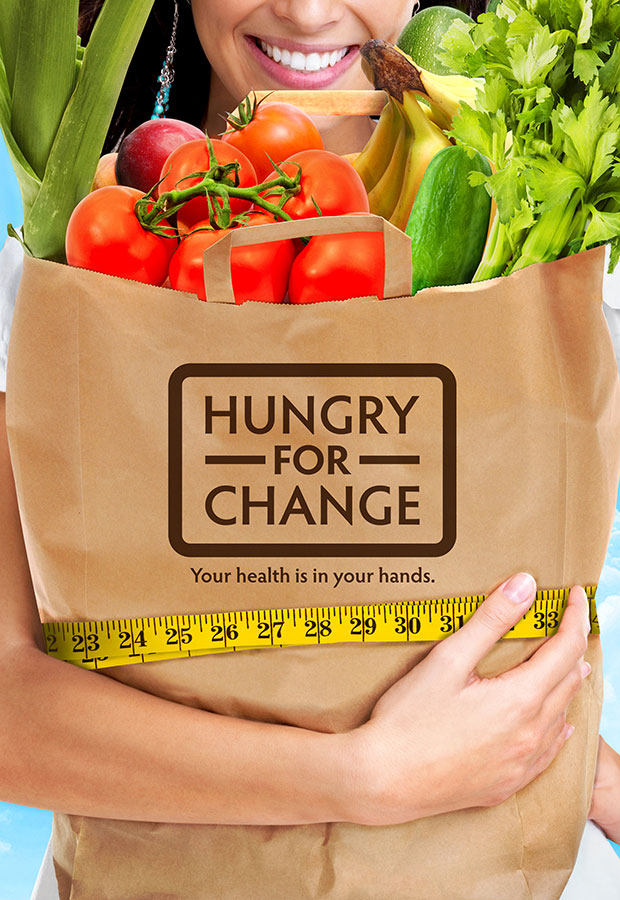
6. Hungry For Change (2012)
Why you should watch it: Most people don’t know a ton about commercial food production, which is precisely why Hungry For Change was made. The film’s agenda includes debunking common diet and weight loss myths. It also offers up little-known facts about the food we’re all eating. The film suggests a few ways to kick bad habits to the curb — and move toward the much healthier perimeter of the grocery store.
7. That Sugar Film (2014)
Why you should watch it: Filmmaker Damon Gameau was in great shape, had a healthy life, and hadn’t eaten sugar in nearly four years. That all changed when he set out to prove that eating too much sugar — 40 teaspoons a day — for a two-month period will have detrimental effects on the body. Instead of going the Super Size Me route, Garneau opts for foods that are marketed as being healthy. Foods like low-fat yogurt, granola bars and cereal helped him reach his 40-teaspoon per day goal. The result? He packs on 19 pounds; his skin breaks out; and he adds four inches to his waist. But that’s not all. Just 18 days into the project, he developed fatty liver disease. (Think Fed Up, but from a strictly personal and experimental perspective.)
RELATED: How to Do a Sugar Detox (Without Going Crazy)
8. Super Size Me (2004)
Why you should watch it: Some credit this film with McDonald’s discontinuation of its Super Size option just six weeks after the movie’s premier. Regardless of the impetus, it’s not to be missed. Imagine being asked, “Would you like to Super Size that?” and having to accept the offer each time. That’s exactly what Morgan Spurlock had to do — for 30 days. Spurlock embarked on a 30-day McDonalds-only challenge to show the damaging effects of fast food on your health. If it doesn’t get you to kick your Big Mac habit and say, “No, I don’t want fries with that,” then it’ll definitely make you think twice about it.
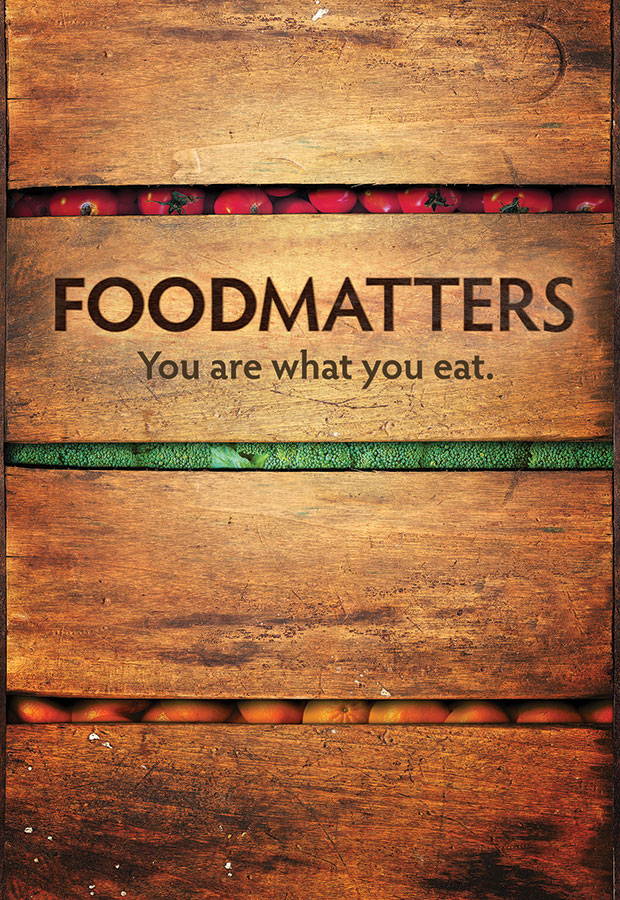
9. Food Matters (2008)
Why you should watch it: Cost of healthcare on your mind this election season? You’re not alone. Take a look back at Food Matters, which asserts that Americans’ poor diets have something to do with that. The film argues that the over-industrialization of food production is making us all sicker. (And that there are way too many chemicals being added to our foods with bogus claims like “healthy” and “natural.”) Directors James Colquhoun and Laurentine ten Bosch were inspired to create Food Matters when Colquhoun’s father was diagnosed with chronic fatigue syndrome, depression and anxiety. To convince him to change his ways, Colquhoun and ten Bosch interviewed the top health experts around the world. When Colquhoun brought the footage to his dad, he took the advice to heart. You’ll want to see the transformation that followed.
RELATED: Forks Over Knives: Can a Vegan Diet Cure What Ails You?
10. Fat, Sick and Nearly Dead (2010)
Why you should watch it: It’s the documentary that helped spark the fresh-pressed juice revolution. At 100 pounds overweight and with a debilitating autoimmune disease, Joe Cross set out on a mission to take back his health. His plan? Thirty days with just some fruits, vegetables and a juicer. Yup, imagine doing that three-day Blue Print juice cleanse for another 27 days — all day, every day. And that excuse that whipping up your own juices is “too much work?” Cross managed to do so while traveling across the country, keeping his veggie haul and juicer in the trunk of his car. NBD.
11. Vegucated (2011)
Why you should watch it: Because we’ve all wondered what it might be like to go vegan, right? Hey, even Beyonce and Jay-Z have tried it. This doc follows three New Yorkers — who love meat and dairy — as they attempt to follow a totally vegan diet for six weeks. So did they graduate to the “high” life? You’ll have to see to find out.
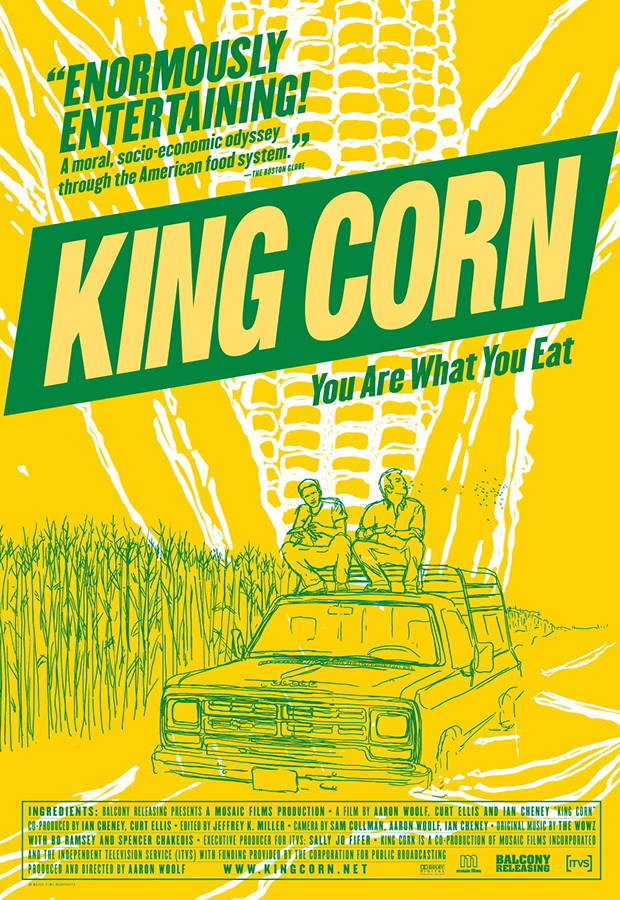
12. King Corn (2007)
Why you should watch it: Two college friends decide to move from Boston to Iowa to grow and farm an acre of corn. Think it sounds boring? Corn is a big-time staple of fast-food meals and packaged foods. The duo discovers firsthand the government’s role in the mass industrialization of the corn farming industry. And if high fructose corn syrup is on the ingredient list of your 3 p.m. snack — which it probably is — you may want to take notes (and trade that snack for something less, well, corn syrupy).
RELATED: 6 Easy Tips for Clean Eating on a Small Budget
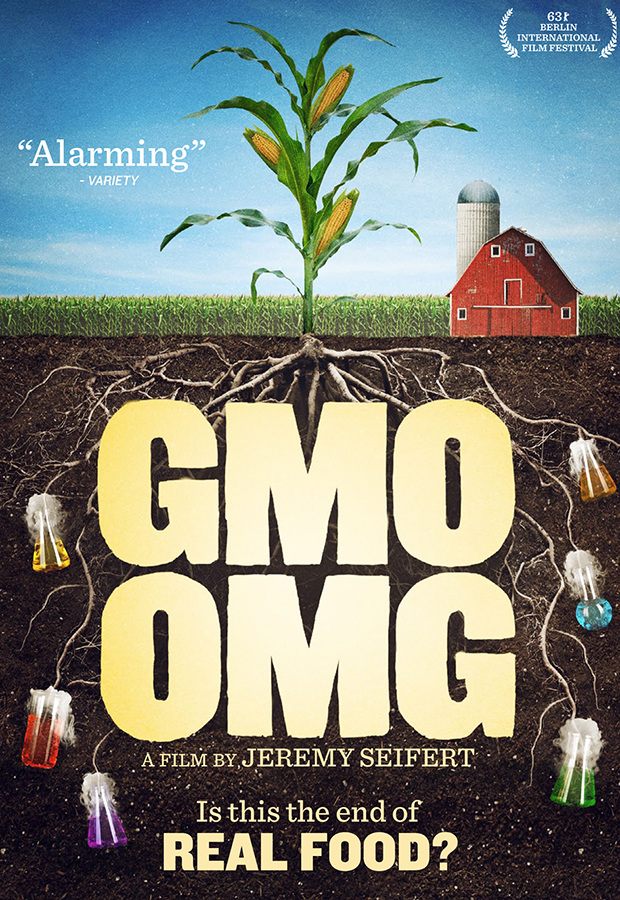
13. GMO OMG (2013)
Why you should watch it: You’ve heard the world buzzing about Monsanto, but you’re still not entirely sure what it is or why it’s potentially scary. GMO OMG is here to break it down for you — and maybe scare you a bit in the process. The filmmaker begs the question: If workers have to wear fully protective masks and gloves to protect themselves from the chemicals they’re spraying on crops, how are those chemicals possibly safe enough for us to eat?
